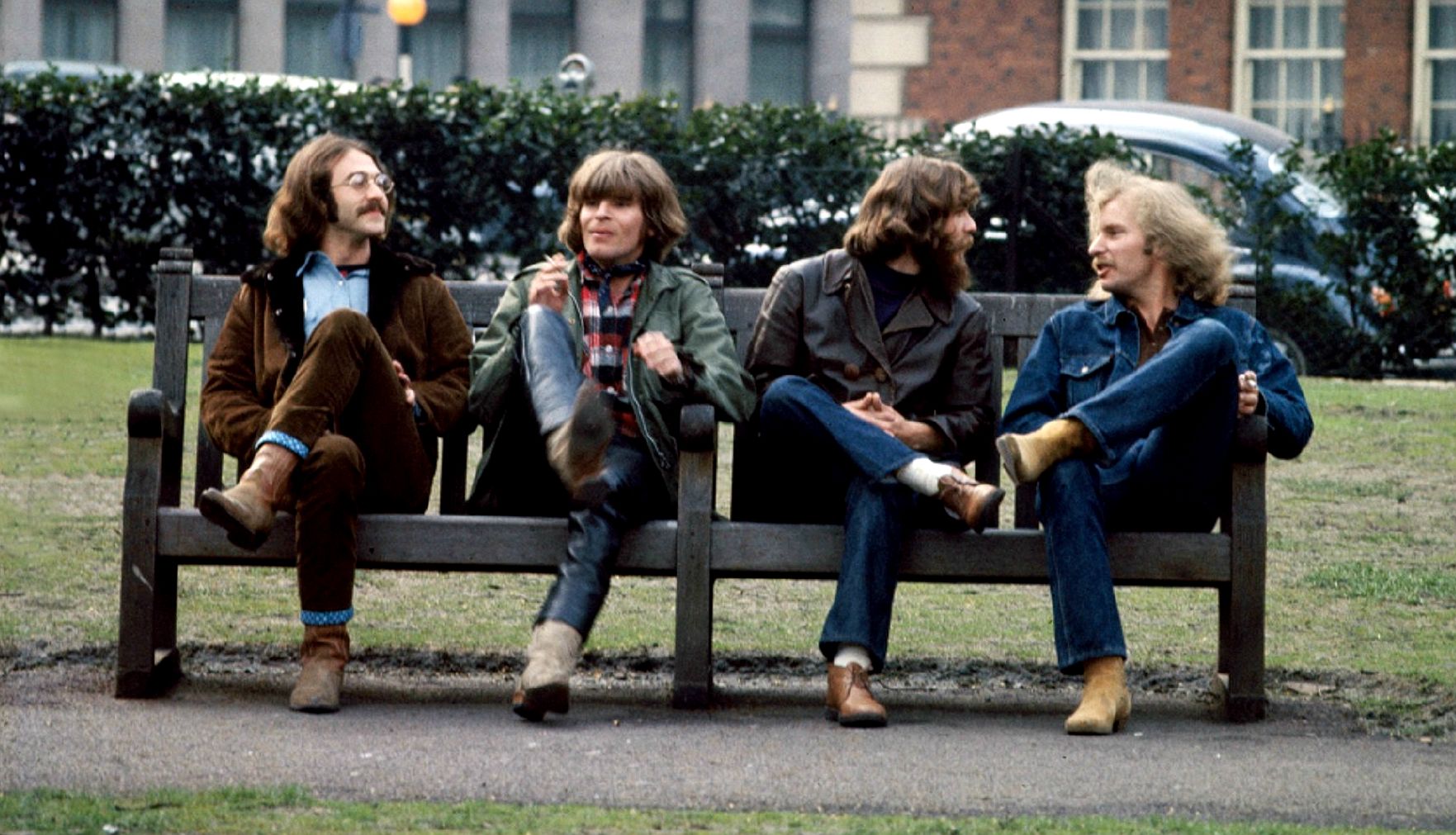
“Need Someone to Hold” is CCR’s plainspoken confession that strength still gets lonely—a small, human song where the world feels cold, and the only answer is warmth you can trust.
“Need Someone to Hold” sits at a pivotal—and quietly heartbreaking—place in the Creedence Clearwater Revival story. It was released on April 11, 1972, as part of Mardi Gras (on Fantasy Records), the band’s final studio album and their only one recorded as a trio after Tom Fogerty’s departure. If you’re looking for the chart “arrival” closest to a debut moment, it’s the album: Mardi Gras entered the Billboard 200 with a debut at No. 63 (debut chart date April 29, 1972) and later climbed to a peak of No. 12. The song itself was not released as a single—the album’s U.S. singles were “Sweet Hitch-Hiker” / “Door to Door” and “Someday Never Comes” / “Tearin’ Up the Country.”
Those facts matter because “Need Someone to Hold” feels like a track that wasn’t built for the front window. It’s an album cut—Track 3 on Side One, running 3:01—and it carries the distinct stamp of the “shared authorship” experiment that defined Mardi Gras. The song is credited to Stu Cook and Doug Clifford, with Clifford also taking the lead vocal. In other words, this isn’t John Fogerty’s American myth-making machine at full tilt. It’s the band, in its final chapter, letting other voices step forward—voices that sound like the working day, the back room, the quiet after the crowd.
And that’s exactly what the song is about: what happens after the bright lights dim.
By the time Mardi Gras was made, CCR were living inside a difficult contradiction. On paper, they were still successful; in reality, the group’s internal balance was strained. Wikipedia’s album history describes how songwriting and production duties were divided among the remaining members—and how the sessions were marked by tension, with the group disbanding only months after release. That context hangs in the air when you hear “Need Someone to Hold.” It doesn’t sound like a victory lap. It sounds like the moment the adrenaline drains out and a person admits what they can’t admit onstage: I’m tired. I’m scared. I want something steady.
A critic once pointed to two lines in the song that feel like a chill passing through a warm room:
“Didja hear about the war?
It comes on home.”
It’s a small lyric, but it carries an old truth—how the outside world doesn’t stay “outside.” It walks right into the living room. The headlines become weather. And even if you’re famous, even if you’re moving city to city, you still wake up in the same body, with the same uneasy mind, wanting the same simple reassurance: a hand to reach for in the dark.
Musically, “Need Someone to Hold” keeps that truth close. It doesn’t chase the swamp-stomp swagger of classic CCR singles; it leans into a more personal, road-worn groove—country-rock shading, a little barroom sway, the kind of rhythm that suggests late-night driving with the radio low. Doug Clifford sings in a voice that isn’t trying to be heroic. It’s an everyday voice, which is precisely why it lands: the narrator isn’t delivering a sermon; he’s telling you what it feels like when the warmth you give comes back cold.
And that phrase—warmth returned as cold—may be the quiet moral center of the song. “Need Someone to Hold” isn’t only romantic longing. It’s the deeper loneliness of effort without reward: being the one who shows up, the one who tries, the one who keeps the peace—until you realize you’re running on empty. In a world that celebrates toughness, the song makes a gentler argument: needing comfort is not weakness; it’s proof you’re still human.
That’s why this track lingers in the CCR catalog, even though it never had the “single” spotlight. It’s a snapshot of a band at the edge of goodbye—Creedence Clearwater Revival turning from legend back toward ordinary life, where the bravest sentence is sometimes the simplest one: I need someone to hold.